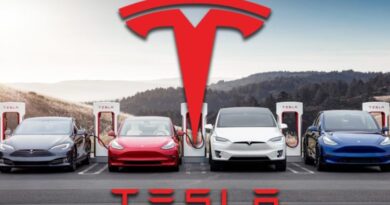Leasing Companies Accused of Overcharging on Electric Vehicle Deals
Overcharging on Electric Vehicle Deals :-According to a new study, European auto leasing businesses overcharge for electric cars (EVs) compared to their similar fuel versions, hurting the overall shift to EVs.
The latest study, released by Transport & Environment (T&E), the top clean transportation advocacy organization in Europe, examined battery electric vehicle (BEV) leasing offers on the used car market.
According to the study, leasing deals for BEVs are typically 57% more expensive in Europe than leasing deals for comparable petrol cars (overcharging on electric vehicle deals).
For example, according to T&E’s research, a fuel Peugeot 208 is available for €371, whereas an electric Peugeot 208 costs around €574 each month.
Given the demand for EVs and their inherent advantages, this gap would seem normal, but the survey also found that BEVs, diesel, and petrol cars all had comparable resale prices.
Overcharging on Electric Vehicle Deals
According to T&E, leasing firms normally charge clients for the anticipated depreciation of a vehicle over the course of a three- to four-year lease, thus higher pricing are consistent with leasing businesses’ projections that BEVs will depreciate more quickly.
T&E asserts that because this is no longer the case and the “higher lease fees for battery electric automobiles are unjustifiable.”
In reality, a T&E examination of 2.7 million used car prices revealed that BEVs degrade equally to diesel and gasoline vehicles in Europe’s three main markets—Germany, France, and the United Kingdom.
The analysis by T&E found that BEVs actually retain more of their worth over time, underscoring a rise in customer trust in more recent models with better technology.
“Now, leasing businesses overcharge clients who wish to transition to battery electric cars. When determining their monthly rates, leasing companies are overly cautious, according to Stef Cornelis, director of electric fleets at T&E.
“Their rates are in line with the situation five years ago. They clearly make a lot of money with this pricing scheme, but customers pay too much for going electric. They are damaging the transition to BEVs at the same time.
Since that leasing firms have a fleet of 12 million cars across Europe and will account for 22% of new auto registrations in 2022, focusing such studies on leasing companies is crucial.
However, a lot of these leasing firms, which are frequently controlled by banks and automakers, do not have goals for switching to completely electric BEVs by 2030. Instead, all such targets are weak and frequently include PHEVs.



![List of the 400 Largest Electricity Providers in Germany [2023 Update] || Liste der 400 größten Stromanbieter in Deutschland [Update 2023]](https://shankeymakers.com/wp-content/uploads/2023/02/WhatsApp-Image-2023-02-16-at-12.26.49-PM-768x450.jpeg)




